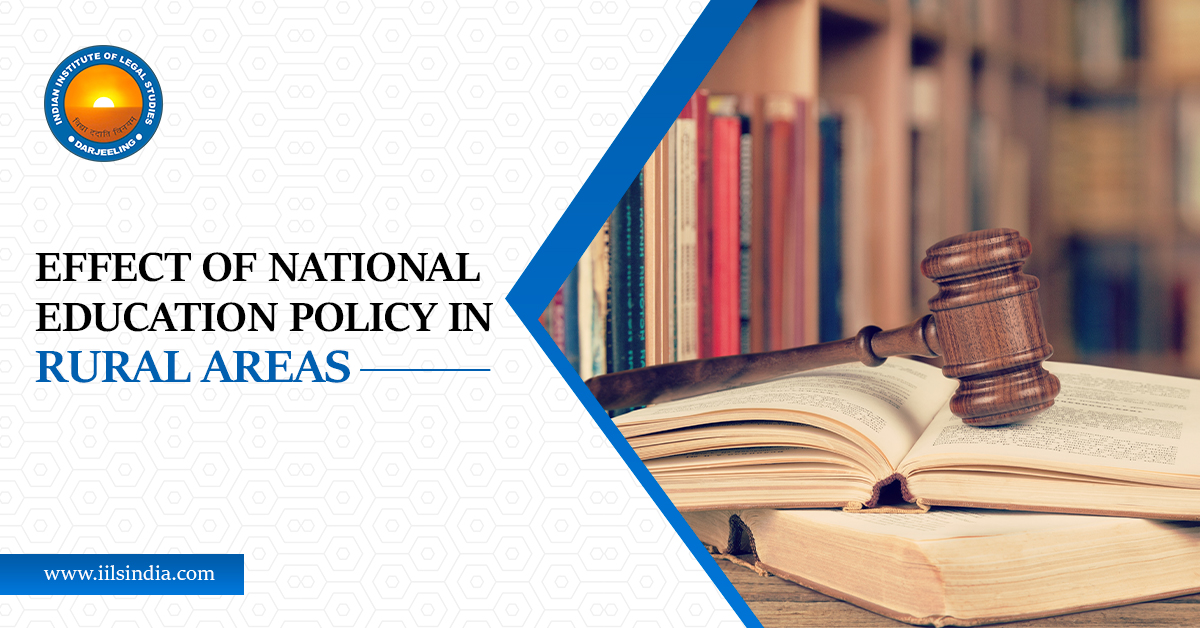The National education policy was approved by the Union cabinet July 2020, which aims to bring change in the educational structure of India. This policy is a replacement of National policy on Education, 1986. In its orientation the Committee members recommends a significant structural change in education system and opted for some progressive changes but somehow it overlooked the constant challenges that Indian Rural Education system is facing. National education policy ignored the fact that the government schools are attended only by the aspirants of economically weaker sections, and this differentiation is a big challenge to the education system of India and NEP has failed to observe this issue.
Though professional courses like medical and Law is very popular amongst the people specially getting admission in LLB is bit easy as Law courses are available in all over the country and also we have law college in Cooch Behar. The fact that rural candidates are finding it difficult to get entry into the professional education and the lack of relevancy between their degrees and the job market leads to unemployment. Consequently, they find themselves both “unemployable” and unemployed. These are issues are not mentioned in the report.
Challenges that the rural education system faces:
Financial issues:
Basically, the lower income of parents in rural areas leads to consider education as expenses rather than an investment. When it comes to higher education, lack of facilities nearby students have to shift to the cities and which adds on to their expenses. And this leads to low rate of enrollment in higher education.
Lack of guidance:
Student of rural areas faces this problem very often. And this requirement of guidance needed for the students of the rural areas as well as their parents.
Gender equality:
The rural India is still facing the problem of gender inequality, in some regions Girl Childs are not allowed to attend schools.
Lack of infrastructure:
The students of rural areas have very limited or no access to basic learning tools, as well as well equipped class rooms, libraries, laboratories, and this leads to poor quality of education.
Rural government schools are not just economically but more importantly, educationally unjustifiable and unsustainable. These result in not only inadequate teaching-learning but more importantly sub-optimal and inequitable schooling experience for most rural children who then either do not get adequately prepared for college admissions or find it difficult to graduate. Although National education policy claims that the purpose of the education to establish a full human potential, develop an equitable and just society but it fails to consider the of rural area’s marginalized population.
The policy claims that it will make education equitable, affordable but it has certain fundamental policy that has higher chance of widening the division between rural and urban area. Excessive use of technology is one of those fundamental principles. In this pandemic situation thousands of students were already deprived from pursuing their education due to change in method from offline to online. This policy emphasizes on the online method without realizing the division on the basis of use of technology exist in the country.
The policy promotes the withdrawal of public funding in education and promote private participation, this may steal the right to education from poor and marginalized population, and education maybe accessible to privileged class only.
The policy recommends to conduct primary education in mother tongue and the term mother tongue is nowhere defined in the policy that leads to ambiguity, moreover this policy makes Sanskrit learning mandatory which makes overburdens the students.
While the new education policy aims to establish an equitable and inclusive society, some portion of the policy overlooked the problem of the rural India. The policy focuses on imparting quality education for all but the online learning process deprive the poor and rural students from their right to education.
While the government claiming privatization of education to impart quality education and improve the education sector, same would become inaccessible for the majority of the population living below poverty line, because every individual is not capable of affording private education in India.
While the new education policy talks about establishing integrity by providing quality education, the linguistic part creates division on the basis of language among the people. In the language provision it mandates Sanskrit learning and it creates linguistic supremacy.
The new education policy is not free from loopholes as observed in various parts of the country as well as law college in Cooch Behar since these provisions creates ambiguity and the provisions needs to be reviewed and worked upon to bring clarity in the policy before implementation.

